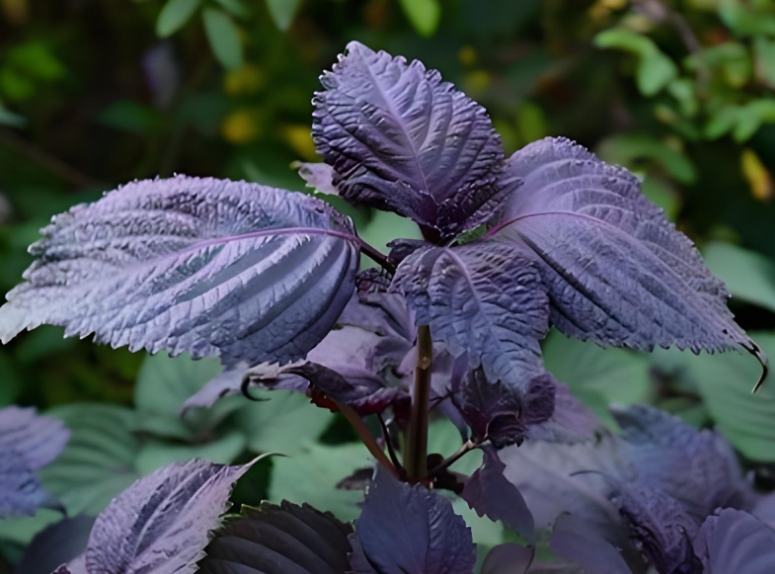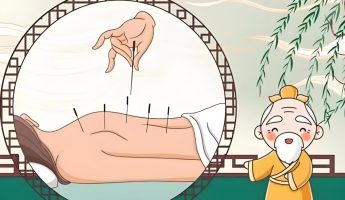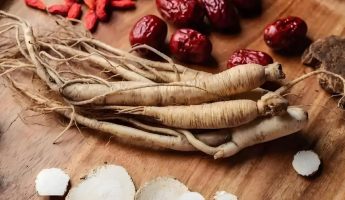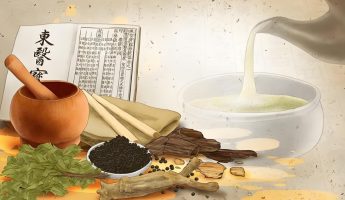According to legend, during the Eastern Han Dynasty, the famous doctor Hua Tuo was collecting herbs in a certain area of Jiangnan and was walking down the mountain. While passing by the river, he accidentally discovered a small water otter eating crabs. Not long after, the otter’s belly swelled up like a drum and it was in pain, rolling on the ground. It sometimes goes into the water and sometimes goes ashore, looking very uncomfortable. Hua Tuo thought to himself, perhaps it’s because he’s been overeating. Let’s take a look and see if there’s a way for him to save himself? At this moment, the otter crawled along the riverbank, climbed to a purple grass and started eating. Then it lay on the ground for a while, and surprisingly, it was safe and sound. Hua Tuo saw it in his eyes and remembered it in his heart. Unexpectedly, this purple grass is also a good antidote!
In the blink of an eye, on the Double Ninth Festival, Hua Tuo passed by a small town while practicing medicine. Seeing that it was already late, he went to an inn to stay. Upon entering, I saw several young people competing to eat crabs and see who could win the championship. Hua Tuo stepped forward and advised them, “Crabs are cold in nature. Eating too much can cause stomach problems, and in severe cases, it can be fatal.” The young man, who was still enjoying himself, continued to chew and eat wildly, and no one followed his advice.
At dawn, Hua Tuo, who was sleeping, was awakened by a shout. He quickly got up and went outside to take a look. It turned out that the young people who were eating crabs were vomiting and rolling on the ground with stomach pain in the yard. At this moment, the shop owner also ran out, anxious and at a loss. Suddenly, Hua Tuo remembered the day he saw otters using purple grass to save themselves by the river. I thought to myself, since those purple grass leaves can detoxify otters, maybe they can also detoxify humans. So he braved the dim morning light and went to the wilderness to pick a handful of purple grass stems and leaves, and had the shopkeeper boil a few bowls of soup for the young people to drink. In less than half an hour, those young men who had just called out to their parents that they were going to die, became peaceful, their stomachs were much better, and there was a smile on their faces. They repeatedly thanked Hua Tuo for saving their lives.

In order to remember this herb, Hua Tuo named it “Zishu”, which means that taking it can make people feel comfortable in their stomachs. Because its pronunciation is similar and it belongs to the category of grass, later generations called it perilla.
Medicinal properties
Xin, Wen. Return to the lung and spleen meridians.
effect
Relieve external coldness, promote qi circulation and stomach function.
application
Wind cold and cold, coughing and vomiting. 2. Stagnation of spleen and stomach qi, vomiting during pregnancy. 3. Fish and crab poisoning
Usage and dosage
Fry and take, 5-10g, not suitable for prolonged frying.
Attention to use
nothing
Quality
Those with large leaves, purple color, unbreakable, strong aroma, and no branches are preferred.
Common methods
The Explanation of Materia Medica by Ye Tianshi
Perilla frutescens and tangerine peel are used to treat cold and qi. Tongren ginseng can treat deficiency, cough, and qi. Suzi uses Liangjiang, Guangpi, and pills to treat rheumatism and athlete’s foot. Same as glutinous rice, it can treat upper qi cough and reflux.



